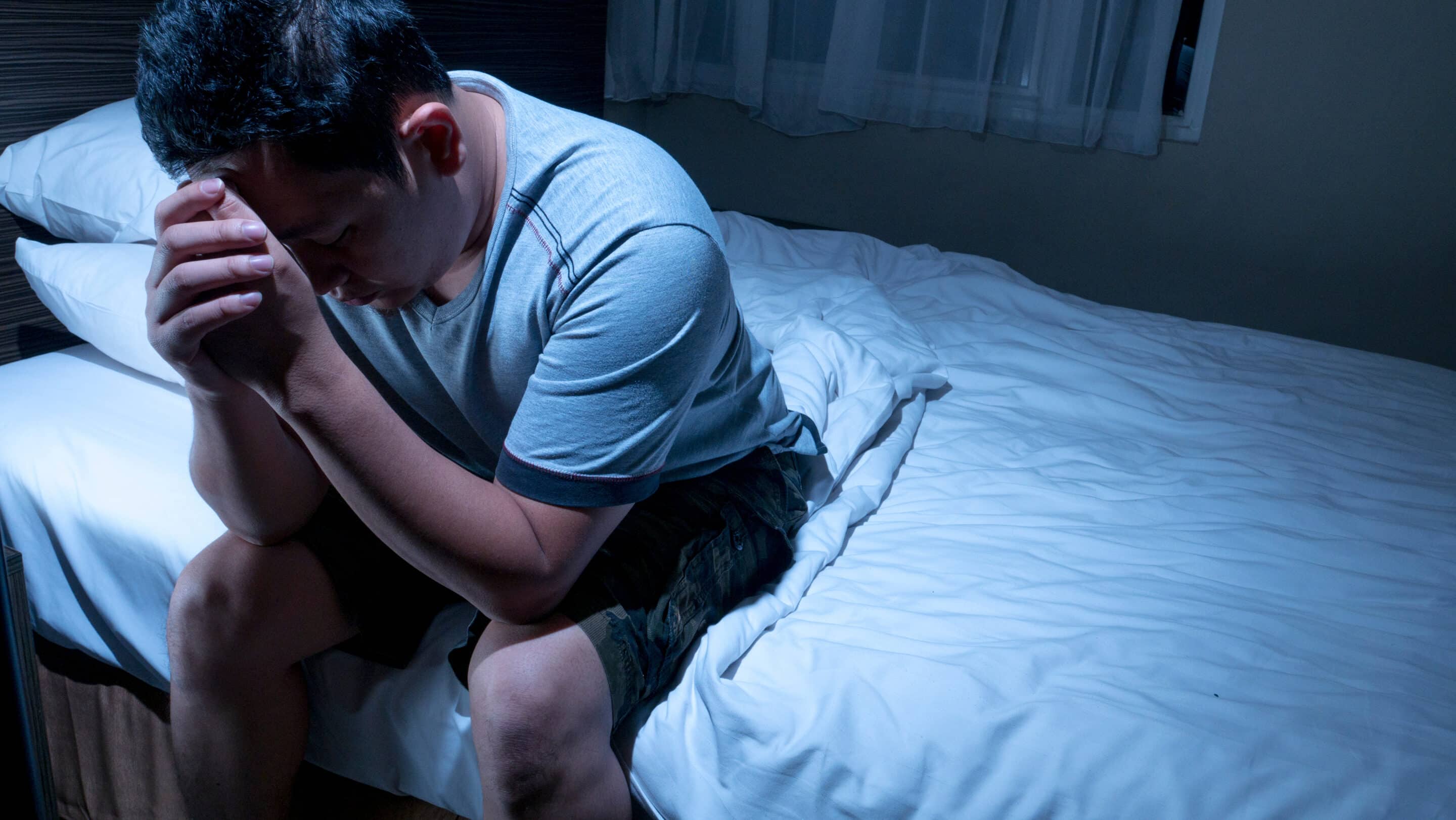Chronic insomnia drives many people to use alcohol or drugs just to fall asleep. Although a glass of wine, a mixed drink, or prescription sedatives like Xanax may help you fall asleep, chances are you won’t stay asleep through the night.
Taking any psychoactive substance that interferes with brain chemistry and the sleep cycle will not improve sleep quality. Unless your brain can transition naturally through the four stages of sleep, it’s likely you will experience intermittent wakening all night.
The four stages of sleep affected by alcohol and drugs are:
- NREM Stage 1: this is the brief transition phase between wakefulness and sleep
- NREM Stage 2: heart rate and body temperature decrease. The brain produces brain wave patterns called sleep spindles that help transition into the next stage
- NREM Stage 3: your muscles relax and blood pressure slightly drops as your enter the deepest sleep stage
- REM Stage 4: also called the “dreaming” stage, REM sleep activates your brain while the rest of your body is relaxed to the point of being nearly immobilized
Research shows that drinking alcohol before going to bed suppresses NREM Stage 3 and REM sleep cycles. Although consuming alcohol at bedtime will allow you to fall asleep quickly, alcohol will begin interfering with slow-wave sleep stages within an hour or two of falling asleep.
Alcohol prevents the brain from reaching the REM sleep stage. If you can’t cycle through all four stages of sleep, you won’t enjoy the benefits of a good night’s sleep. Instead, alcohol disrupts the level of brain chemicals necessary for transitioning through sleep cycles. This disruption forces you to wake up and stay awake throughout the night.
How Do Drugs Like Marijuana and Heroin Impact Sleep?
Some research indicates that short-term (less than six weeks) use of marijuana may reduce the time it takes for a person to fall asleep. However, long-term use of marijuana diminishes sleep quality by causing insomnia, nightmares, and symptoms of sleep apnea. Chronic marijuana users who attempt to abstain from marijuana experience poor sleep quality and other withdrawal symptoms that often lead to relapse.
“Nodding off” or falling asleep after injecting heroin is a classic sign of heroin addiction. Although they may appear to be sleeping, heroin users are actually in an artificially induced state of sedation. Once the effects of heroin wear off, the brain is in a heightened state of arousal, as though the person had not been asleep for several days. This is one reason why opioid users develop psychotic-like symptoms when they cannot obtain drugs to help them fall asleep.
Studies have found that people with narcolepsy and heroin addicts share something in common–the presence of a neuropeptide in the brain that regulates wakefulness. Doctors discovered that heroin users had nearly 55 percent more of this neuropeptide in their brains than non-heroin users. Further research into opioid use and the “wakefulness” neuropeptide determined that morphine users also had excessive amounts of the same neuropeptide implicated in narcolepsy.
If you or someone you know is abusing alcohol or drugs to treat sleep difficulties, please call Hickory Treatment Centers for immediate help with a substance abuse disorder.


